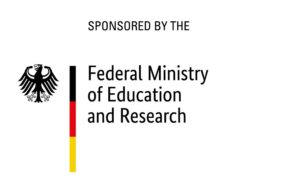
Redigim examines the impact of digitalisation on European citizens’ understanding of what it means to contribute to society. Taxation, philanthropy, charity and mutual aid are redistributive forms that enable individuals to ‘pay in’ to their societies. They invite or compel citizens to make payments with a view to sustaining their social worlds, supporting others, or transforming their societies. Digitalisation processes are rapidly reconfiguring access to and engagement with these redistributive forms, initiating more social forms of payment and contribution. The emergence of new forms of contribution fostered by digital platforms point to novel modes of participation, solidarity, and care for others, but they are also disruptive of established state-mandated forms of social provisioning, raising questions about the future of taxation systems in European welfare states.
Redistributive imaginaries are semiotic systems that give meaning and shape to the structures which enable prosocial contribution. They provide collective, common-sense ways of understanding the relationship between economic contribution and social solidarity. Redigim investigates the role of the digital in emergent redistributive imaginaries. It will develop case studies in five national contexts – the United Kingdom, Switzerland, Finland, Spain and Montenegro – representing different welfare state models and philanthropic traditions. Redigim will identify local, national and transnational tendencies at a European level, and will use project findings to build scenarios for the future of prosocial contribution in Europe.
Located in cultural sociology, media and cultural studies and social and cultural anthropology, the project team is uniquely placed to deliver qualitative research that foregrounds the role of cultural, signifying practices in economic processes and practices. Redigim will pursue an innovative mixed-methods approach to the study of digitalisation, incorporating discourse analysis, affordance analysis of digital platforms and ethnography of everyday prosocial practices. Redigim will significantly advance the study of redistributive imaginaries, and it will deliver qualitative case studies and scenarios which will be of value to a range of stakeholder audiences in civil society, government and business.
CONSORTIUM:
- Project Leader: Rebecca Bramall, University of the Arts London, School of Media – London College of Communication, United Kingdom, e-mail
- Moritz Ege, University of Zürich, Department of Social Anthropology and Cultural Studies, Switzerland, e-mail
- Mercè Oliva, Universitat Pompeu Fabra, Department of Communication, Spain, e-mail
- Janne Autto, University of Lapland, Faculty of Social Sciences Finand
- Carna Brkovic, University of Goettingen, Institute for Cultural Anthropology and European Ethnology, Germany
COOPERATION PARTNERS:
- Marco Kistler, Digital/Organizing GmbH
- Juha-Erkki Mäntyniemi, Fingo
- Susana Garcia Noguero, Goteo Foundation
- Maija Mattila, Kalevi Sorsa Foundation
- Anica Boljević, Fund for Active Citizenship
 Start date
Start date
1 November 2022
 Project duration
Project duration
36 months
 Project budget
Project budget
€ 1 328 347
Funding organisations

![]()
![]()
![]()
![]()
![]()